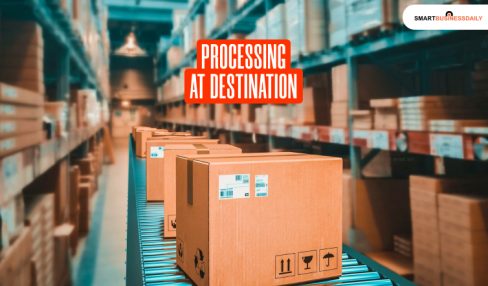The Role of Sustainability in Modern Business Practices
6 Mins Read
Published on: 27 March 2025
Last Updated on: 04 April 2025

toc impalement
Sustainable business practices are the future that cannot be discounted at any cost. These pactices will allow business to become more compatible with the current vision of a cleaner and a greener future.
In other words, sustainability is reshaping how businesses operate and how customers make decisions. Companies that pay attention to their environmental impact gain trust, save money, and stay ahead in a changing market.
While some think sustainability means expensive upgrades and complicated changes, small, thoughtful shifts in everyday operations can have a huge impact.
In Carrollton, GA, where businesses range from local shops to large-scale operations, sustainability quickly becomes a standard practice, not an extra effort. Whether cutting back on waste, sourcing better materials, or switching to digital systems, companies are finding practical ways to operate more efficiently while reducing their environmental footprint.
Sustainable Business Practices That People Must Follow
Sustainable business practices are the future. Businesses that do not follow principles of sustainability will eventually become obsolete. Not just that, sustainability is also rapidly becoming a basic norm that customers expect businesses to follow.
Hence, if you are an entrepreneur, your job is to understand the role that sustainability might play in the grand scheme of things. Here are some prominent benefits of sustainability that you must understand if you are pokanning on practicing it as an organization.
Here we go!
Reducing Waste Responsibly
Every business creates waste, but tossing everything in the trash isn’t just bad for the environment—it’s bad for business. Cluttered storage areas, overflowing dumpsters, and unnecessary disposal costs add up fast. The solution isn’t just throwing less away but finding better ways to handle what does get discarded.
Businesses often opt for renting dumpsters for waste disposal. These containers help separate recyclables, manage bulk waste, and reduce landfill impact. When it comes to dumpster rental Carrollton GA companies can rely on A-1 Waste & Rolloff to provide reliable and affordable services.
Some businesses are going further by donating unsold inventory, setting up recycling stations, or repurposing materials for other uses.
Supporting Ethical Sourcing
Customers today want to know where their products come from and are more willing to support businesses that make responsible choices. Avoiding shady supply chains is not just about avoiding shady supply chains—it’s about investing in quality, fair wages, and sustainable production.
A bakery using locally milled flour and free-range eggs, a boutique carrying handmade clothing from ethical brands, or a construction company choosing reclaimed wood over mass-produced lumber reduces environmental impact while creating stronger customer connections.
Businesses prioritizing quality over shortcuts builds a reputation that lasts longer than any trend.
Creating Recycling Programs
Throwing a recycling bin in the office isn’t enough to call a business eco-friendly. The key is making recycling an active part of daily operations, whether it’s in the breakroom, at checkout counters, or within production processes.
Some businesses set up customer recycling programs, like a clothing store offering discounts for returning used items or a coffee shop with a reusable cup exchange. Offices cut back on waste by switching to digital receipts, cloud storage, and refillable office supplies.
When recycling is part of the company culture, it becomes second nature rather than an afterthought.
Encouraging Community Involvement in Sustainability
Sustainability efforts become even stronger when businesses involve their local community. Companies supporting eco-friendly initiatives outside of their operations help create a ripple effect, inspiring customers and other companies to follow suit.
Some businesses host local clean-up events, partner with schools for environmental education programs, or donate to conservation projects. Others collaborate with local farmers or eco-conscious vendors to source products responsibly.
Engaging with the community builds trust and positions businesses as leaders in sustainability efforts beyond their walls. Therefore, sustainable business practices noyt just help businesses to grow but also build a community.
Rethinking Product Packaging
Product packaging often creates unnecessary waste, especially when businesses rely on excessive plastic and non-recyclable materials. Customers today notice when a brand makes an effort to use minimal, recyclable, or biodegradable packaging—and they appreciate it.
Businesses are switching to compostable mailers, reusable containers, or creative packaging solutions that reduce excess material. Some even offer returnable packaging programs, where customers can send back used containers for reuse.
These changes cut costs, reduce landfill waste, and show customers that a company is committed to sustainability in its operations.
Reducing Water Consumption
Water waste is easy to overlook until the utility bills start climbing. A dripping faucet doesn’t seem like a big deal, but over time, it wastes thousands of gallons of water. Businesses that actively manage water use cut costs while helping conserve resources.
Restaurants are swapping traditional dishwashing methods for high-efficiency systems, office buildings are installing sensor-based sinks, and hotels are adopting towel reuse programs to reduce unnecessary laundry cycles.
Even switching to drought-resistant landscaping helps businesses use water more efficiently without sacrificing quality.
Implementing Digital Solutions
Going paperless entails making business operations smoother, faster, and more efficient. Keeping stacks of paperwork, filing cabinets full of old records, and printed invoices piling up all lead to wasted resources and cluttered workspaces.
Businesses are moving toward digital contracts, cloud-based storage, and e-receipts to reduce unnecessary paper waste. Restaurants are switching to QR code menus, retailers are emailing receipts instead of printing them, and offices are eliminating printed reports in favor of digital tracking systems.
Minimizing Single-Use Plastics
Plastic waste adds up fast, and businesses that take steps to cut back stand out to eco-conscious customers. Plastic straws, cutlery, and takeout containers are some of the biggest culprits, and many companies are phasing them out in favor of biodegradable, compostable, or reusable options.
Many restaurants offer incentives for customers who bring their reusable cups, while retailers are switching from plastic shopping bags to paper or fabric alternatives. Offices are stocking break rooms with refillable water stations
instead of plastic bottles, and event planners are ditching disposable decorations for reusable setups. These choices help reduce waste without affecting convenience.
Offering Sustainable Employee Benefits
Businesses that care about sustainability should extend that mindset to their employees. Offering eco-friendly benefits encourages workers to adopt sustainable habits at work and in their personal lives.
Some companies subsidize public transportation passes or bike-to-work programs, reducing car emissions from daily commutes. Others offer remote work options, allowing employees to cut down on unnecessary travel altogether.
Workplaces that incorporate wellness initiatives like organic snack options or indoor greenery create an environment that promotes sustainability and productivity.
Developing Longer-Lasting Products
Fast production often leads to poor-quality products that break quickly and end up in landfills. Businesses that focus on durability and long-term use create a more sustainable model while building a reputation for quality.
Tech companies are designing repairable devices rather than forcing customers to replace them, furniture brands use sustainable hardwoods that last for decades, and clothing brands are moving toward well-made, timeless designs instead of disposable fashion trends. All of these sustainable business practices can add value to businesses effectively.
When products last longer, customers are happier, waste is reduced, and businesses benefit from repeat buyers who trust their quality.
The Final Thought
In summation, sustainable business practices are smart and crucial in th current business landscape. Companies that reduce waste, adopt digital tools, and develop long-lasting products create more efficient, cost-effective, and future-ready businesses.
Whether it’s ditching plastic, investing in digital solutions, or supporting employees with green initiatives, every small change has a big impact. Therefore, you must definitely consider including sustainability practices in your business plan.
Do let us know if you liked this piece of content and follow our page for more. Thank you and have agreat day ahead.
LEARN MORE:

















